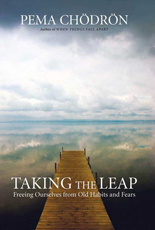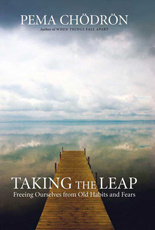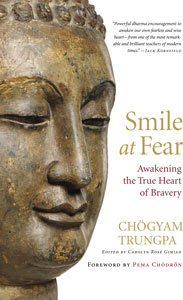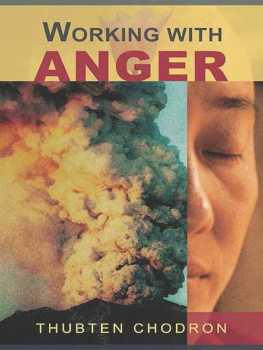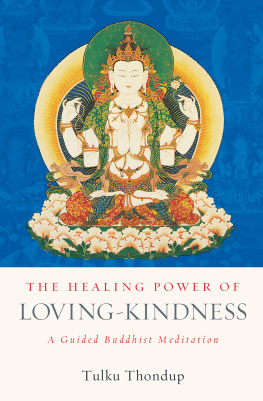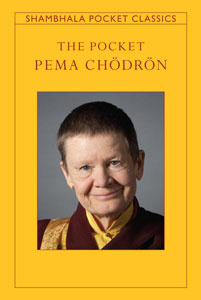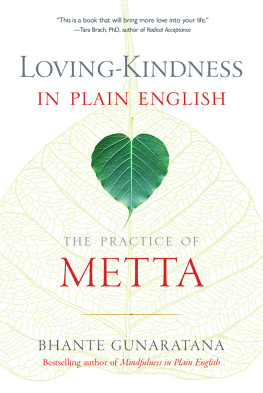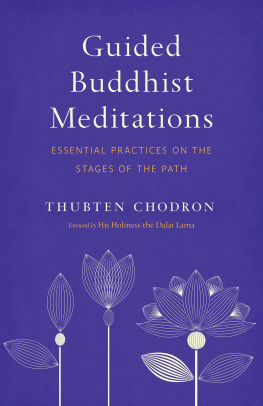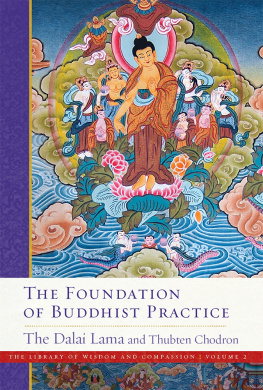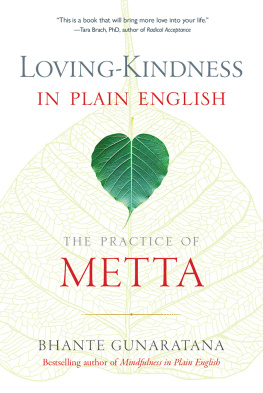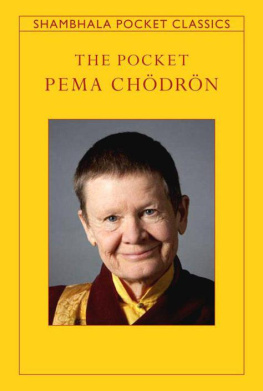Chödrön - The wisdom of no escape: and the path of loving-kindness
Here you can read online Chödrön - The wisdom of no escape: and the path of loving-kindness full text of the book (entire story) in english for free. Download pdf and epub, get meaning, cover and reviews about this ebook. City: Boulder, year: 2001, publisher: Shambhala Publications, genre: Religion. Description of the work, (preface) as well as reviews are available. Best literature library LitArk.com created for fans of good reading and offers a wide selection of genres:
Romance novel
Science fiction
Adventure
Detective
Science
History
Home and family
Prose
Art
Politics
Computer
Non-fiction
Religion
Business
Children
Humor
Choose a favorite category and find really read worthwhile books. Enjoy immersion in the world of imagination, feel the emotions of the characters or learn something new for yourself, make an fascinating discovery.
The wisdom of no escape: and the path of loving-kindness: summary, description and annotation
We offer to read an annotation, description, summary or preface (depends on what the author of the book "The wisdom of no escape: and the path of loving-kindness" wrote himself). If you haven't found the necessary information about the book — write in the comments, we will try to find it.
The wisdom of no escape: and the path of loving-kindness — read online for free the complete book (whole text) full work
Below is the text of the book, divided by pages. System saving the place of the last page read, allows you to conveniently read the book "The wisdom of no escape: and the path of loving-kindness" online for free, without having to search again every time where you left off. Put a bookmark, and you can go to the page where you finished reading at any time.
Font size:
Interval:
Bookmark:
The Wisdom
of No Escape

and the Path of Loving-Kindness
P EMA C HDRN

S HAMBHALA
Boston & London
2010
Shambhala Publications, Inc.
Horticultural Hall
300 Massachusetts Avenue
Boston, Massachusetts 02115
www.shambhala.com
1991 Pema Chdrn
All rights reserved. No part of this book may be reproduced in any form or by any means, electronic or mechanical, including photocopying, recording, or by any information storage and retrieval system, without permission in writing from the publisher.
The authors proceeds from this book will be donated to Gampo Abbey, Pleasant Bay, Nova Scotia.
The Library of Congress catalogues the original edition of this book as follows:
Chdron, Pema.
The wisdom of no escape: and the path of loving-kindness/ Pema Chdrn.
p. cm.
eISBN 978-0-8348-2109-5
ISBN 978-0-87773-632-5
ISBN 978-1-57062-872-6
ISBN 978-1-59030-793-9
1. MeditationBuddhism. I. Title.
BQ5625.C48 1991
294.3443dc20 90-53585 CIP
To my teacher, Vidyadhara the Venerable Chogyam Trungpa, Rinpoche, and to my children, Arlyn and Edward
CONTENTS
PREFACE
T HE TALKS in this book were given during a onemonth practice period (dathun) in the spring of 1989. During that month the participants, both lay and monastic, used the meditation technique presented by Chgyam Trungpa that is described in this book. The formal sitting meditation was balanced by walking meditation and eating meditation (oryoki) and by maintaining the environment of the monastery and helping to prepare the meals.
Early each morning these talks were presented. They were intended to inspire and encourage the participants to remain wholeheartedly awake to everything that occurred and to use the abundant material of daily life as their primary teacher and guide.
The natural beauty of Gampo Abbey, a Buddhist monastery for Western men and women founded in 1983 by Chgyam Trungpa, was an important element in the talks. The abbey is located on Cape Breton Island, Nova Scotia, at the end of a long dirt road, on cliffs high above the Gulf of Saint Lawrence, where the wildness and playfulness of the weather, the animals, and the landscape permeate the atmosphere. As one sits in the meditation hall, the vastness of the sky and water permeates the mind and heart. The silence of the place, intensified by the sounds of sea and wind, birds and animals, permeates the senses.
During the dathun (as always at the abbey), the participants kept the five monastic vows: not to lie, not to steal, not to engage in sexual activity, not to take life, and not to use alcohol or drugs.
The resulting collaboration of nature, solitude, meditation, and vows made an alternatingly painful and delightful no exit situation. With nowhere to hide, one could more easily hear the teachings given in these simple talks in a wholehearted, open-minded way.
The message for the dathun as well as for the reader is to be with oneself without embarrassment or harshness. This is instruction on how to love oneself and ones world. It is therefore simple, accessible instruction on how to alleviate human misery at a personal and global level.
I wish to thank Ane Trime Lhamo; Jonathan Green of Shambhala Publications, who encouraged me to publish a book; Migme Chdrn of Gampo Abbey, who transcribed and edited the talks; and Emily Hilburn Sell of Shambhala Publications, who shaped them into their present form. Whatever is said here is but my very limited understanding, thus far, of what my teacher, Chgyam Trungpa, Rinpoche, compassionately and with great patience showed to me.
May it be of benefit.
Loving-Kindness
T HERES A COMMON misunderstanding among all the human beings who have ever been born on the earth that the best way to live is to try to avoid pain and just try to get comfortable. You can see this even in insects and animals and birds. All of us are the same.
A much more interesting, kind, adventurous, and joyful approach to life is to begin to develop our curiosity, not caring whether the object of our inquisitiveness is bitter or sweet. To lead a life that goes beyond pettiness and prejudice and always wanting to make sure that everything turns out on our own terms, to lead a more passionate, full, and delightful life than that, we must realize that we can endure a lot of pain and pleasure for the sake of finding out who we are and what this world is, how we tick and how our world ticks, how the whole thing just is. If were committed to comfort at any cost, as soon as we come up against the least edge of pain, were going to run; well never know whats beyond that particular barrier or wall or fearful thing.
When people start to meditate or to work with any kind of spiritual discipline, they often think that somehow theyre going to improve, which is a sort of subtle aggression against who they really are. Its a bit like saying, If I jog, Ill be a much better person. If I could only get a nicer house, Id be a better person. If I could meditate and calm down, Id be a better person. Or the scenario may be that they find fault with others; they might say, If it werent for my husband, Id have a perfect marriage. If it werent for the fact that my boss and I cant get on, my job would be just great. And If it werent for my mind, my meditation would be excellent.
But loving-kindnessmaitritoward ourselves doesnt mean getting rid of anything. Maitri means that we can still be crazy after all these years. We can still be angry after all these years. We can still be timid or jealous or full of feelings of unworthiness. The point is not to try to change ourselves. Meditation practice isnt about trying to throw ourselves away and become something better. Its about befriending who we are already. The ground of practice is you or me or whoever we are right now, just as we are. Thats the ground, thats what we study, thats what we come to know with tremendous curiosity and interest.
Sometimes among Buddhists the word ego is used in a derogatory sense, with a different connotation than the Freudian term. As Buddhists, we might say, My ego causes me so many problems. Then we might think, Well, then, were supposed to get rid of it, right? Then thered be no problem. On the contrary, the idea isnt to get rid of ego but actually to begin to take an interest in ourselves, to investigate and be inquisitive about ourselves.
The path of meditation and the path of our lives altogether has to do with curiosity, inquisitiveness. The ground is ourselves; were here to study ourselves and to get to know ourselves now, not later. People often say to me, I wanted to come and have an interview with you, I wanted to write you a letter, I wanted to call you on the phone, but I wanted to wait until I was more together. And I think, Well, if youre anything like me, you could wait forever! So come as you are. The magic is being willing to open to that, being willing to be fully awake to that. One of the main discoveries of meditation is seeing how we continually run away from the present moment, how we avoid being here just as we are. Thats not considered to be a problem; the point is to see it.
Inquisitiveness or curiosity involves being gentle, precise, and openactually being able to let go and open. Gentleness is a sense of goodheartedness toward ourselves. Precision is being able to see very clearly, not being afraid to see whats really there, just as a scientist is not afraid to look into the microscope. Openness is being able to let go and to open.
Next pageFont size:
Interval:
Bookmark:
Similar books «The wisdom of no escape: and the path of loving-kindness»
Look at similar books to The wisdom of no escape: and the path of loving-kindness. We have selected literature similar in name and meaning in the hope of providing readers with more options to find new, interesting, not yet read works.
Discussion, reviews of the book The wisdom of no escape: and the path of loving-kindness and just readers' own opinions. Leave your comments, write what you think about the work, its meaning or the main characters. Specify what exactly you liked and what you didn't like, and why you think so.

